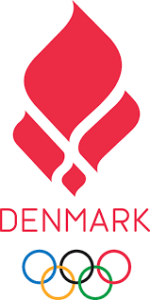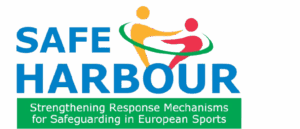The National Olympic Committee and Sports Confederation of Denmark (DIF) is pleased to be a partner in the new Erasmus+ Project named “Strengthening Response Mechanism for Safeguarding in European Sports” (SAFE HARBOUR), which is coordinated by the European Olympic Committees EU Office (EOC EU Office). This initiative is dedicated to enhancing safeguarding mechanisms across European sport, creating safer environments for all.
About DIF

DIF is the umbrella organization for 62 Danish sports federations and serves both as the country’s NOC and national sports confederation. As an independent, non-governmental organization, DIF represents Danish sport in international Olympic and sports fora, and collaborates closely with public authorities on sports development and policy. While DIF oversees grassroots and elite sport through its federations, athlete support structures are also through partnerships with Team Denmark, which is responsible for elite sport development, and the Danish Athletes’ Commission, which represents the voice of elite athletes in Denmark.
The work of DIF on safeguarding in sports to date
While there is no single point of entry for safeguarding in its broad definition within the DIF, we work in close collaboration with Team Denmark – the national elite sports institution – and the Danish Athletes’ Commission to promote athlete welfare and address issues such as eating disorders, mental health challenges, and abusive or harmful behavior in sport.
DIF has a framework to prevent and respond to athlete welfare issues, with a focus on creating safe, healthy environments. DIF has key initiatives on safeguarding that includes:
DIF also offers expert guidance and help directly to clubs or sports federations that are facing specific cases on this topic. DIF has one employee who is tasked with this work and also addresses the topic of eating disorders.
Seksuelle krænkelser | DIF (website)
In this area, DIF has also formed collaborations with other non-profit organizations, such as Save the Children, focusing on awareness and prevention of sexual violations and assaults in educational institutions and sports.
Når grænser brydes – når grænsen brydes (website)
Seksuelle krænkelser | DIF (website)
Team Denmark – Elite sport and mental health
Team Denmark also addresses athlete mental health and wellbeing as part of its elite sport strategy. It provides education, professional support, and performance environments with a focus on safety and psychological resilience.
EliteSupport is a confidential resource for Team Denmark elite athletes, -coaches who wish to report unacceptable behavior within elite sports settings. EliteSupport allows individuals to raise concerns about inappropriate conduct, whether they have personally experienced it or witnessed it occurring to others.
The Danish Athletes’ Commission
The Danish Athletes’ Commission represents elite athletes in Denmark and plays an active role in safeguarding and wellbeing efforts. It works to ensure that athletes' voices are heard and that the environment they train and compete in supports mental health and safety.
Athlete protection through match-fixing prevention
DIF plays key role in preventing match-fixing in Denmark and hereby protecting athletes. DIF has implemented strict regulations prohibiting the manipulation of sports competitions, applying to all athletes, coaches, and officials within its member federations. By enforcing regulations and promoting ethical standards, DIF helps create a safer sporting environment where athletes are less exposed to manipulation or coercion.
To support this, DIF has established the independent Matchfixing Tribunal and takes part in the national platform against match-fixing, alongside government agencies. DIF also offers an anonymous whistleblower system, ensuring athletes can safely report concerns. These efforts aim to prevent match-fixing and safeguard athletes from related threats and pressure.
The role of DIF within the SAFE HARBOUR project
Within the SAFE HARBOUR project, DIF will play a critical role in tailoring the European Response framework to its national context. Responsibilities include drafting a National Strategy to guide safeguarding actions, delivering mandatory training for the leadership and National Federations, and hosting a National Multiplier Event to raise awareness among stakeholders. Additionally, DIF will engage in peer-to-peer roundtables, contribute to thematic seminars, and disseminate the project results through various channels. By actively participating in all project activities, DIF will help ensure the successful implementation and sustainability of safeguarding measures.
Background information on the SAFE HARBOUR project
The SAFE HARBOUR project, short for “Strengthening Response Mechanisms for Safeguarding in European Sport”, is a 30-month project co-funded by the European Union through the Erasmus+ Sport Programme 2024. Coordinated by the EOC EU Office, the consortium includes Thomas More and Asser Institute as experts on safeguarding, human rights and law, 2 International Federations (International Biathlon Union and International Ice Hockey Federations), and 20 National Olympic Committees (Belgium, Bosnia and Herzegovina, Croatia, Cyprus, Czechia, Denmark, Germany, Hungary, Kosovo, Latvia, Lithuania, Luxembourg, Malta, Montenegro, Norway, Poland, Portugal, Romania, Slovakia and Slovenia). Additionally, the International Olympic Committee (IOC) is involved as an outside resource.
The project seeks to strengthen the capacity of European NOCs and Federations to address safeguarding concerns by identifying gaps, developing a European Response framework, and fostering collaboration. This framework will be adapted to national contexts, complemented by training and awareness initiatives to enhance safeguarding measures at both national and European levels. Therefore, SAFE HARBOUR aims to equip partner NOCs and Federations with the tools and confidence to implement effective safeguarding measures while establishing a robust support network for Safeguarding Officers and laying the groundwork for a future IOC Regional Safeguarding Hub.

![]()